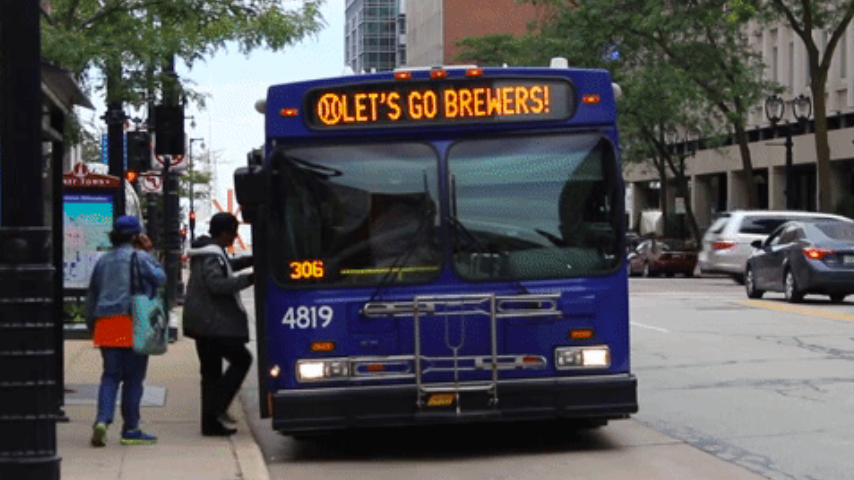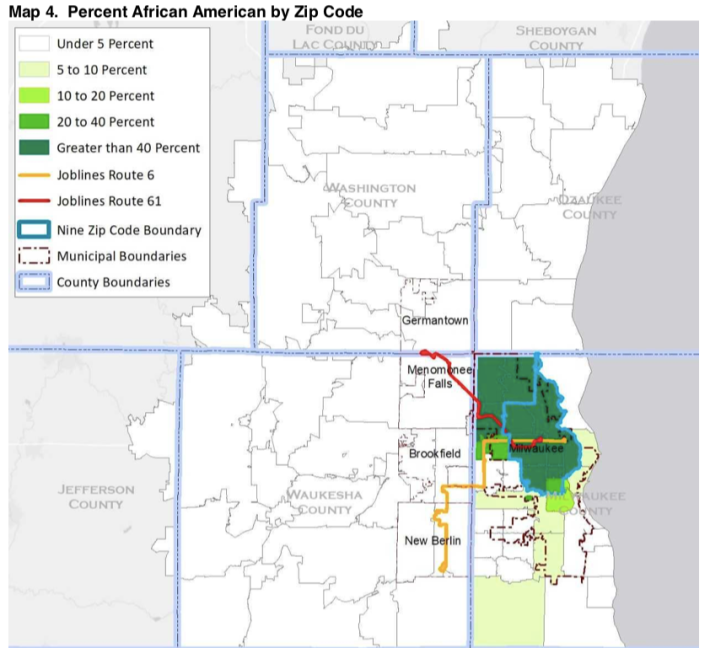Properly designed bus routes can help low-income workers gain access to better paying jobs, according to a new Wisconsin study — which is hitting officials' desk just as they are considering eliminating two such routes that are working exactly as designed.
The study from the University of Wisconsin-Milwaukee [PDF] examined the so-called "spatial mismatch" problem — where inner-city residents are isolated from suburban job opportunities. In Milwaukee, the 6 and 61 bus routes were designed four years ago to an answer that problem — but are now slated for elimination if the state doesn't renew the funding.
That would be a tragedy. The study found that the bus routes — which connect some of Milwaukee's poorest and most-segregated neighborhoods to high-growth job centers in the suburbs — were not only working, but suburban employers were grateful for the added access to employees.
"The region will not prosper as long as large areas of Milwaukee remain impoverished, cut off from areas where job growth is occurring," study author and urban studies professor Joel Rast wrote. "And employers outside Milwaukee County will continue to face significant worker shortages if ways are not found to connect job-seeking Milwaukee residents with the positions these businesses seek to fill."
There are 15,000 jobs at 700 employers that, until the launch of the the 6 and 61 bus routes in 2015, were completely inaccessible by transit. The bus routes were hard fought; Local civil rights groups sued the state for discrimination in transportation funding, winning $11.5 million over four years to operate bus service to suburban Waukesha and Washington counties in a legal settlement with the state.
Milwaukee is one of the nation's most-segregated metro areas. And mostly white suburban counties like Waukesha had long bitterly resisted a bus connection with Milwaukee — even as the county became an increasingly important jobs destination.
Interviews with 10 employers and 101 bus riders found that the two "Jobsline" bus route are indeed an economic lifeline for those who needed it the most.
Among the bus riders surveyed, 87 percent said the bus routes were extremely important to them for maintaining their job. Fully, 42 percent said they would be forced to quit their jobs if the bus routes disappeared. Most of the bus riders — 66 percent — said they used the bus primarily to get to work. They were overwhelmingly black — 70 percent — and almost four in five came from Milwaukee's nine poorest zip codes.
Among the workers, about a third were making less than $10 an hour, but, in general, wages ranged well above minimum wage. Riders of Jobsline bus routes were all almost totally dependent on transit. Only 27 percent had a valid drivers license and just 14 percent had access to a car, according to the survey.
"Many were enduring long commute times to get to low-paying jobs," wrote Rast. "Still, they were highly motivated to work."
The two routes carried about a combined 1,000 rides per day.






